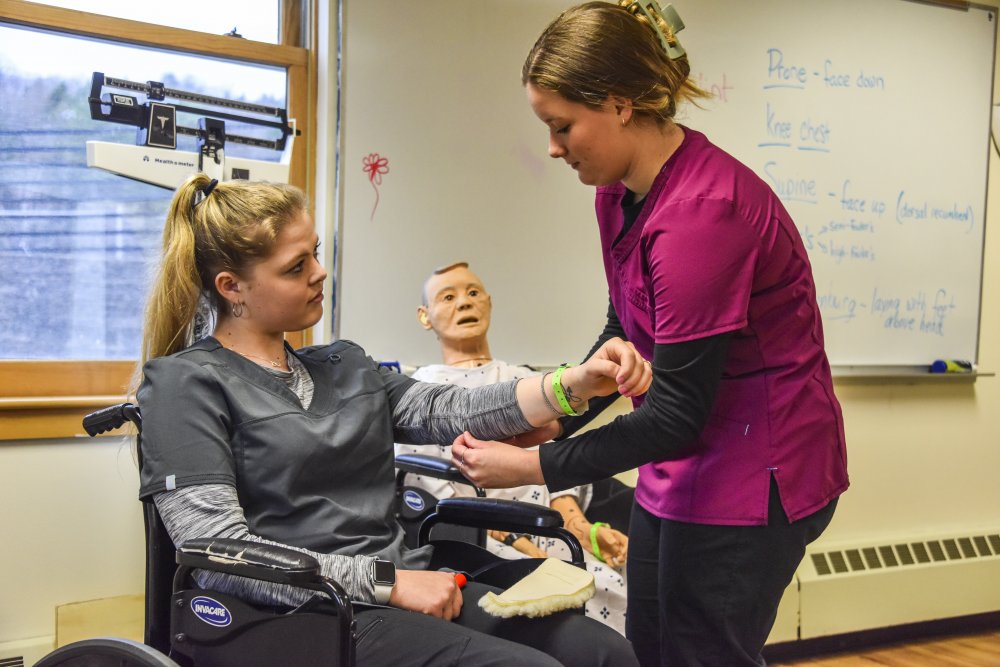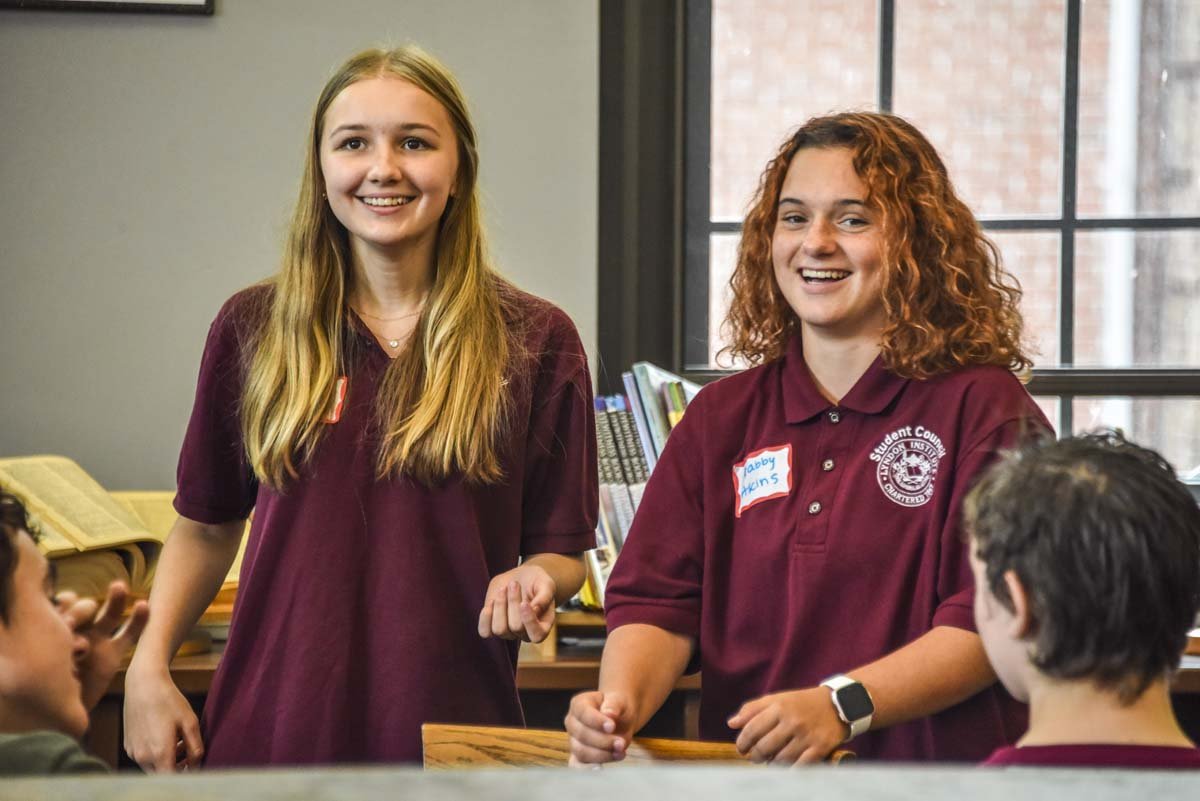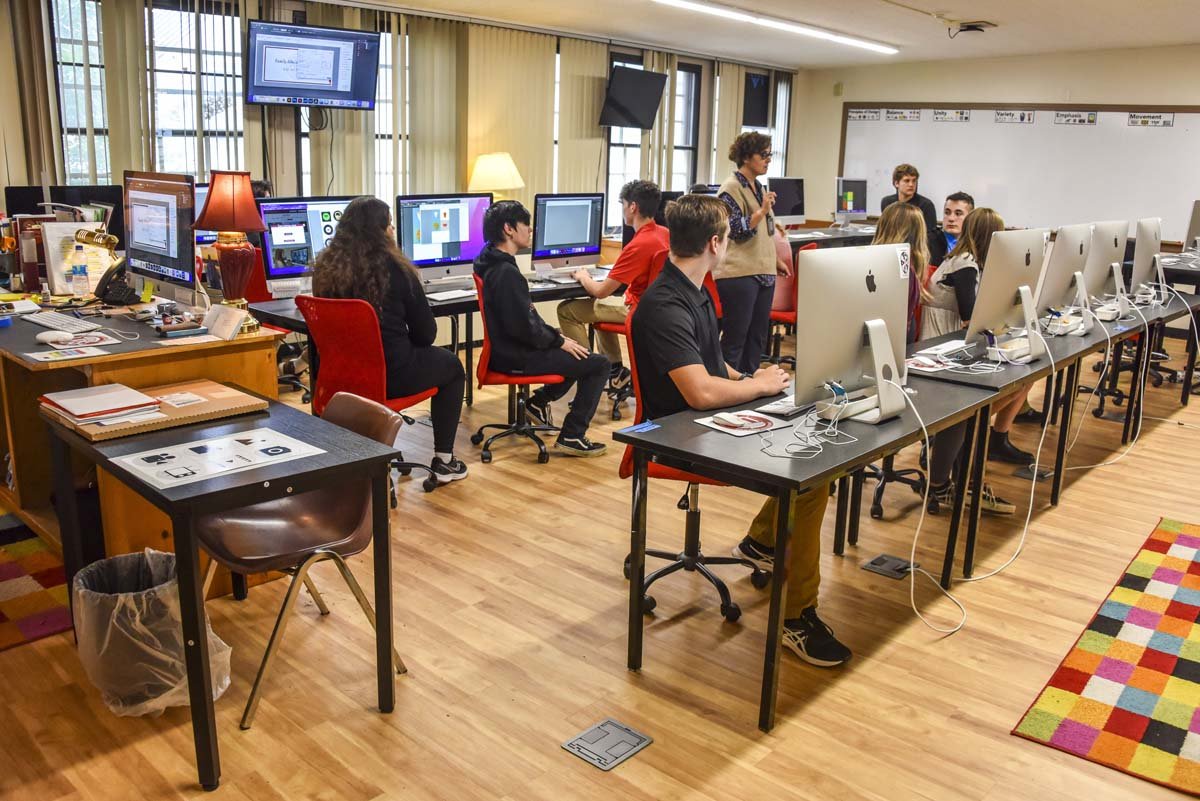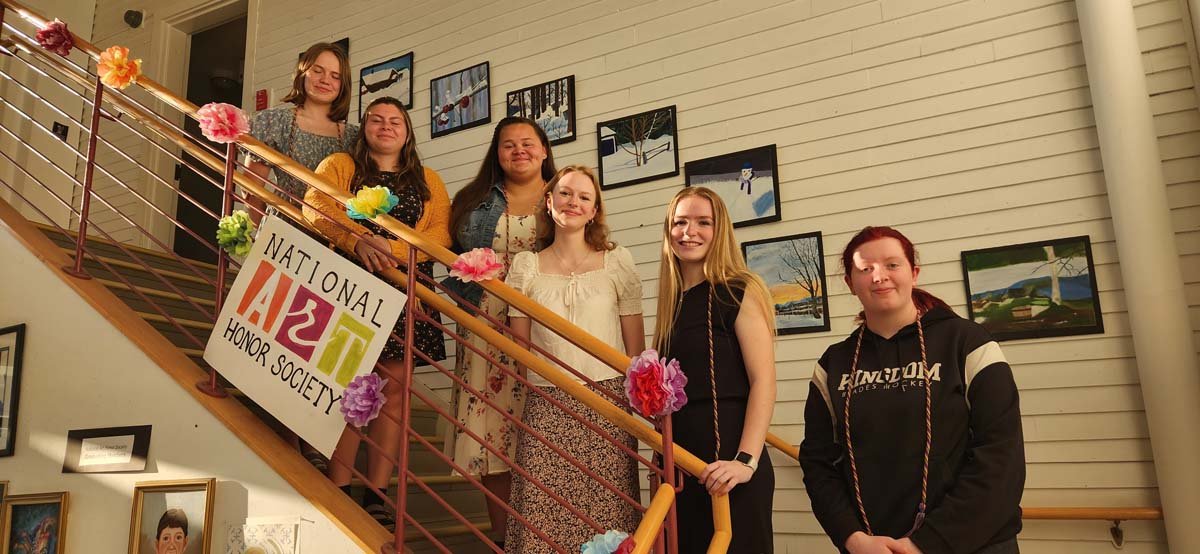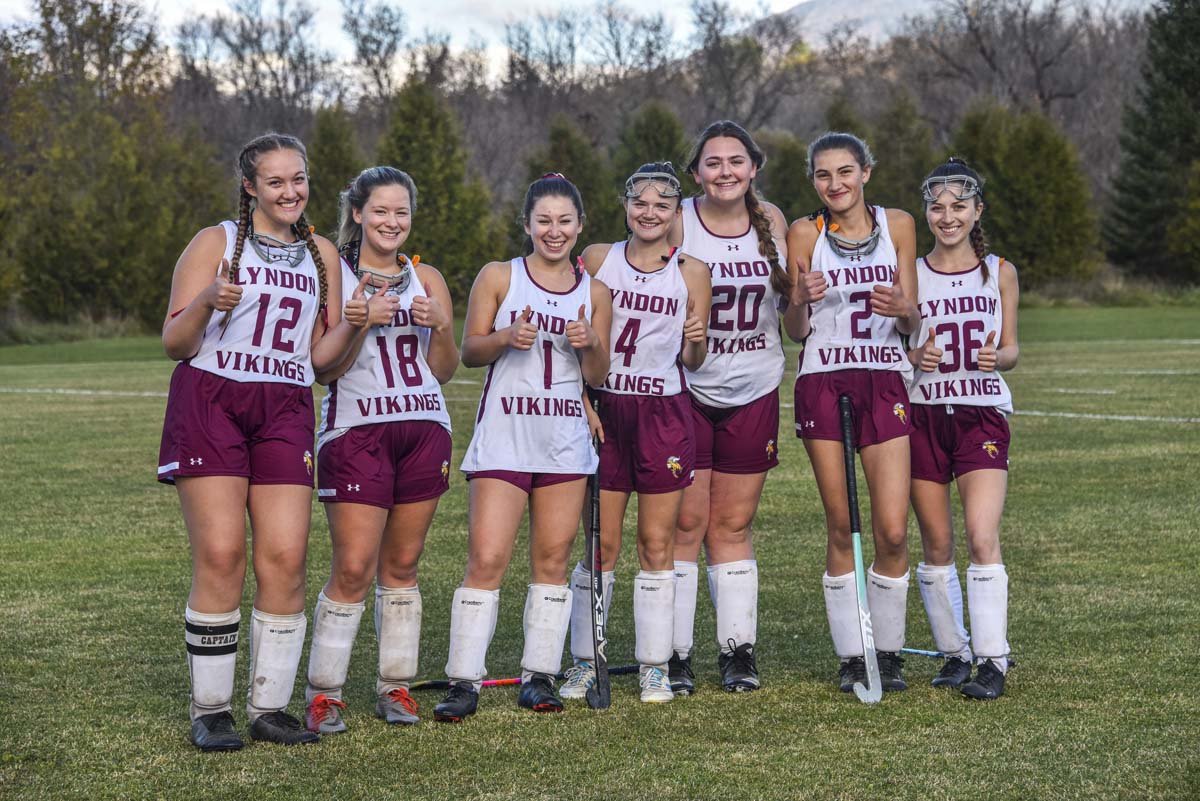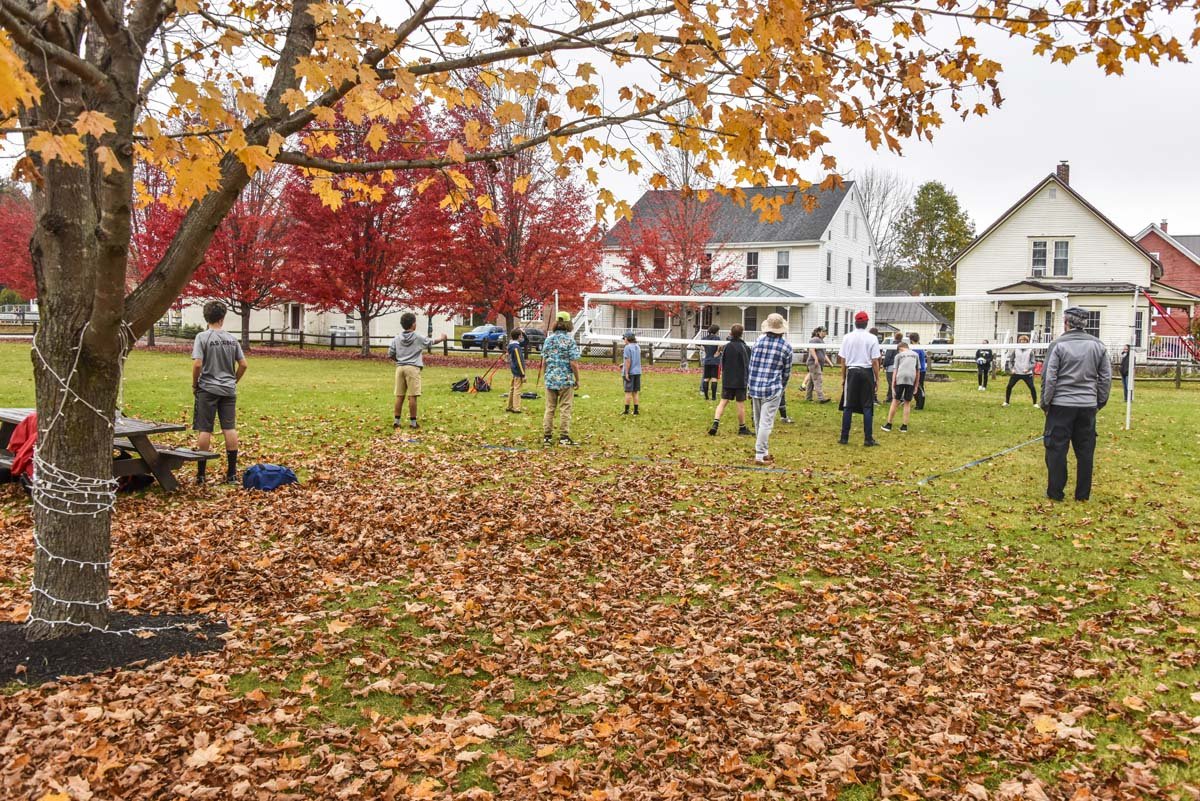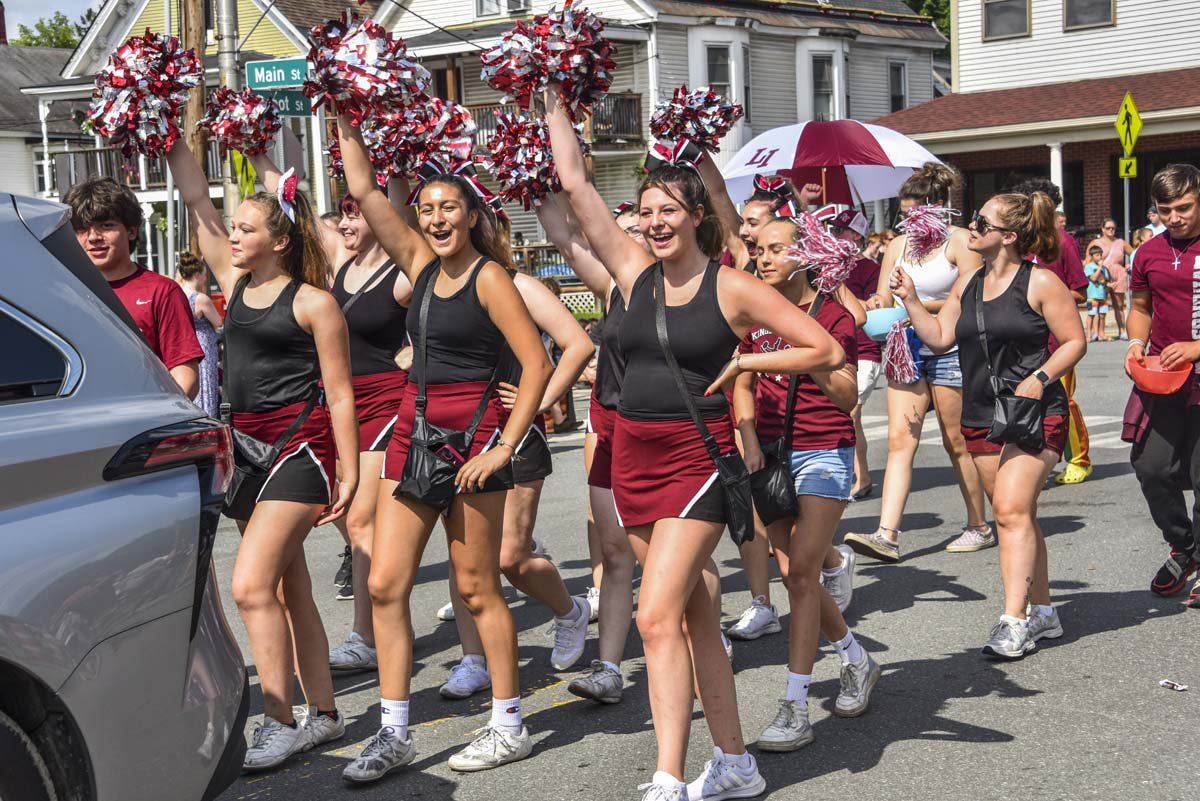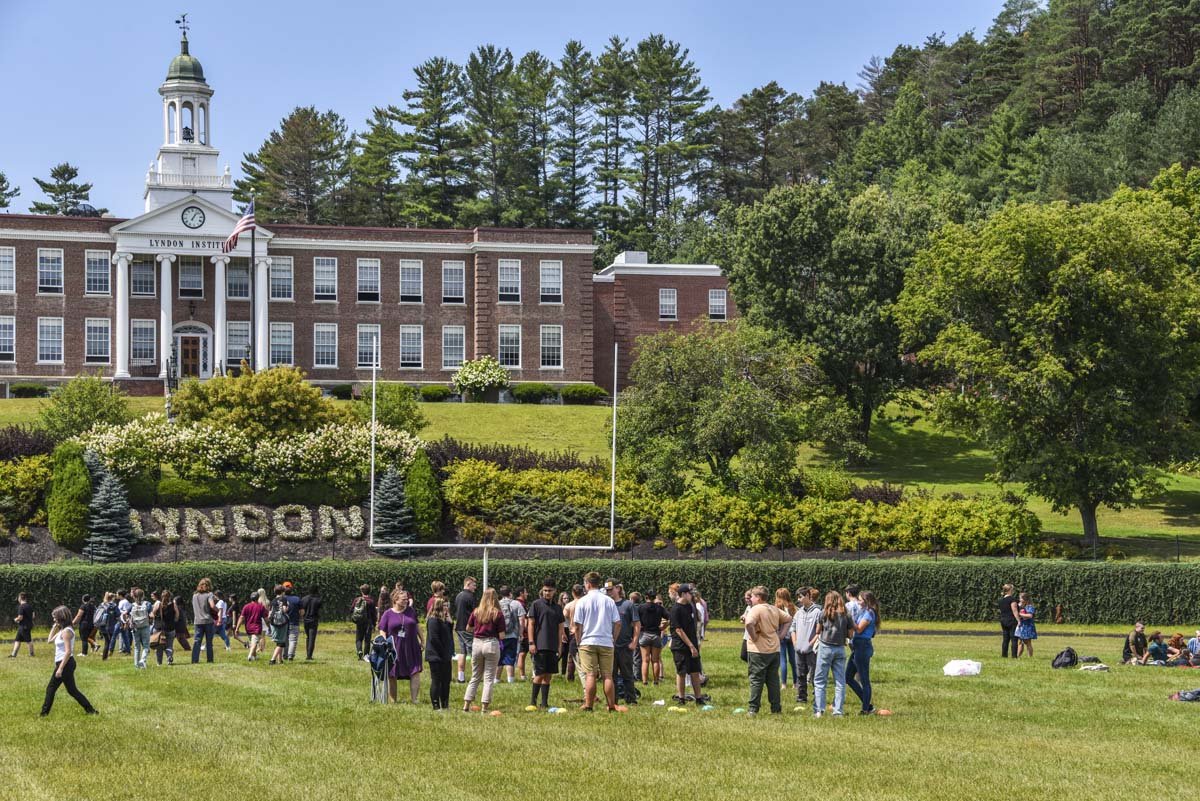- Our School
- Admissions
-
Academics
- Divisions and Faculty
- Commencement 2024
- January Term
- International Program (ESOL)
- College and Career Counseling
- Upward Bound
- Library/Monahan Academic Commons
- Career/Technical Education
- Lyndon Learning Collaborative
- Flexible Lyndon Institute Pathways (FLIP)
- Specialized Instruction
- Adult Continuing Education
- Lyndon Institute Course Catalog
- Student Services
- Arts
- Athletics
- Campus Life
- Support LI
- Alumni
« Back
Caring for the Future in Allied Health
April 26th, 2023
By David Stahler Jr.
I reach out with a trembling hand and grab my cane from the bedside. Slowly, I rise from the bed, push the curtain aside and shuffle toward the door. I’m almost home free when I hear whispers behind me.
“There he goes again,” a voice behind me whispers.
“He’s trying to go meet his wife,” another voice says.
Before I can leave the room, a young woman steps in front of me, a warm smile on her face.
“Where are you going?” she asks in a gentle tone.
“I’ve got to go see my wife,” I say. “She’s waiting for me. She comes every day.”
She hesitates a moment. I see her glance over at the other young woman watching, clipboard and pen in hand. She doesn’t have the heart to tell me my wife passed away four weeks ago.
“I’m afraid she won’t be meeting you today,” she says. She gently turns me around and starts guiding me back to bed. “Why don’t we get you a snack. Are you hungry?”
“Not really,” I say. “Who are you again?”
“I’m Jasmine, your LNA,” she says, her voice patient. She’s already told me twice in the last few minutes, but she still smiles as she says it.
Fortunately, I’m not actually 92 years old (yet), I don’t have Alzheimer's disease, and my wife is very much alive. I’m just playing a role, spending an hour in Daniels Hall, in the Allied Health Careers program’s virtual clinic, volunteering for the LNA class’s simulation lab. And while my caretaker, Jasmine Vincent, isn’t yet a Licensed Nursing Assistant (LNA), she’s well on her way to becoming one. And an excellent one, at that.
Lyndon Institute’s LNA program is a half-day course within the school’s Career and Technical Education (CTE) department; students who meet the LNA course requirements and pass the licensure exam will leave LI with a marketable credential that can directly lead to jobs starting at $25 per hour.
Instructor Britta Hensel oversees this year’s class of seven students from LI, St. Johnsbury Academy, and Danville High School, though in many respects her space in Daniels feels less like a class and more like a real hospital.
“Our program helps prepare students for the LNA exam,” she said. “But more importantly it gives them a chance to see if a career like this is right for them. That’s why we try to make it as realistic as possible, through simulations like this.”
The full-year class begins in a fairly traditional way. Through the first part of the year, students make their way through the program’s textbook and accompanying workbook, covering one to three chapters per week. They read on their own, complete the workbook exercises, watch videos, then work together to process the material in groups under Hensel’s guidance.
“We follow the chapters up with ‘chalk talk,’ troubleshooting scenarios and practicing a range of skills depending on the chapters,” Hensel said.
But the heart of the course comes in the second semester as the Simulation Lab heats up, with students undergoing real life patient care situations that cover a range of different scenarios.
“We tackle a variety of settings, from urgent care clinics and doctor’s offices to rehab and long-term care facilities, as well as a range of health and wellness issues, from cerebral palsy to heart attacks to diabetes.”
And Alzheimer's. When I first arrived, Hensel took me aside and ran me through my role as 92 year-old “Anyce Guy”—explaining my condition, my living situation, and offering suggestions for some things I can do to realistically present the patient scenario to her students.
“The simulation allows the students to put their skills into play and gives them an important chance to put everything they’ve been learning together.”
The students experience different simulated patients, some with (rather unsettlingly realistic-looking) mannequins, some with each other, some with Hensel playing a patient, and some with volunteers like me.
The simulation is a three-person team effort. First, there is the LNA, who is lightly briefed on the patient’s basic situation but who doesn’t know the full story of the patient’s background or specific circumstances. Partnered with the LNA is a student evaluator. Like the LNA, the evaluator doesn’t receive the full briefing; their job is to simply observe the LNA and take notes on their performance, only speaking up if they spot a safety issue. The third member of the team is the ‘LNA of the Week,’ a rotating student from the program who acts almost as a teaching assistant, helping Hensel set up the lab and who knows the full patient scenario.
Once the simulation is over, the team debriefs, starting with the LNA, who shares what she’s been improving on. The evaluator offers the LNA an assessment of her performance with specific, targeted feedback, pointing out what the LNA did well as well as anything they might have missed along the way, with the ‘LNA of the Week’ on hand to fill in the gaps. There is a healthy and respectful back and forth between all members of the team. The goal, after all, is to make each other better, and the ability to share both positive and constructive feedback is a valuable, high-level skill.
“Students gain through observation. I try to be as much in the background as possible. That’s what the ‘LNA of the Week’ is for. In a real work-place, the teacher won’t be there to step in. They’ll be on their own.”
As for the real world, Hensel builds in time for professional clinical observations, taking students to NVRH, which allows students to shadow different areas within the hospital, accompanying adult LNAs, LPNs, and RNs. “It benefits the students for sure,” Hensel said. “They get to see different kinds of departments they may one day want to work in, such as surgical care. It also helps the hospital—giving them a chance to scout potential recruits for an industry workforce that has become chronically understaffed in many hospitals and care facilities.
“But there is an advantage to having our own in-house simulation lab,” Hensel added. “If a student spends a few hours in a doctor’s office or hospital, it’s hard to know what they’ll encounter. Our simulation lab is a controlled environment. I can guarantee a particular scenario that’s important for them to learn from, which makes for a better experience.”
When I spoke afterward with junior Jasmine Vincent, the young woman who attended to me in the simulation, she echoed the value of the experience. “It gives us a real-life view of clinical work. It’s not just practicing a skill—there’s a real person there. They respond to your care. You can’t help but feel an emotional connection to what you’re doing,” she said.
In their LI onsite setting, students can also develop a higher level of comfort and confidence that allows them to better focus on the task at hand.
“The other nice part about doing it here at LI is that you get a chance to work through the curveballs that are thrown at you in a safe environment,” Vincent said. “You can make a mistake and learn from it without worrying about hurting someone.”
This is especially helpful for Vincent, who also works part time at Grafton County Nursing Home in North Haverhill, New Hampshire. Her experiences in both the nursing home and the clinical practice setting reinforce each other.
Her simulation partner, senior Lilyan Miller, added her appreciation for the lab experience from her perspective as the evaluator. “It’s really valuable to see somebody go through the steps of care. You get to see them do stuff you would have missed. You also get to see how they do a certain step and how it compares to how you might have done it.”
Vincent plans on becoming a nurse after graduation, while Miller is still deciding whether or not to pursue a career in health care. Regardless, she has found the LI’s LNA program invaluable. “I’ve learned a lot about the body and its needs,” she said. “More importantly, I’ve learned how to be a better communicator. This work requires excellent communication skills.”
Both young women are planning on testing for their LNA license at the end of the semester. As an added bonus, Lyndon Institute is now a state-approved testing site for LNA licensure, not only for its own students but for adults as well, serving those in the community who need access to testing. “Our students can now test in the setting they trained in,” Hensel said, “which helps put them at ease when it comes time to show what they’ve learned.”
Hensel, now in her second year teaching Allied Health at Lyndon Institute, has an interesting background, bringing extensive experience not only in nursing but in other related fields, as well.
“I majored in communications and public relations in college,” she says. “My first related job was experiential education through adventure-based learning to teach middle schoolers. I also taught EMT courses to adults, including wilderness rescue training.”
Eventually, Hensel went back to school, earning a Master’s Degree in Nursing Leadership. From there, Hensel worked in just about every area of health care in hospitals on both the East and West Coasts—emergency medicine, critical care, in-patient surgical units—before settling in New England and eventually coming back around to teaching, working with adults in nursing education. In addition to teaching at LI, Hensel still works part-time in the simulation lab at Dartmouth-Hitchcock Medical Center in Lebanon, New Hampshire.
“Because of my background, my role isn’t just teaching hard skills, but helping my students develop those important soft, transferable skills.”
Soft skills, indeed.
“Are you ready for your snack now?” a warm voice greets me.
“I’m not hungry,” I say, shaking my head. “I just want to go home. Are you here to bring me home?” It’s the third time I’ve asked her the same question in the last ten minutes. The answer is delivered in the same kind, patient voice.
“This is your home now, Mr. Guy. Everything is going to be okay. How about some apple sauce?”
“Fine,” I murmur. I look up at the smiling face. “Who are you again?”
“I’m Jasmine, your LNA” she says, beginning to gently clean my hands with a disinfectant wipe. “I’m here to take care of you.”
The simulation gives me pause. The hospital bed, the curtains, the uniforms, the smells—it all feels so real, and I can’t help wondering if this is a glimpse of a possible future. I joke with Jasmine when the simulation is over. “Who knows? Maybe you’ll be taking care of me like this for real someday!”
I hope it’s not the case. But if it comes true, at least I know I’ll be in skilled and caring hands.
Posted in the category Front Page.

